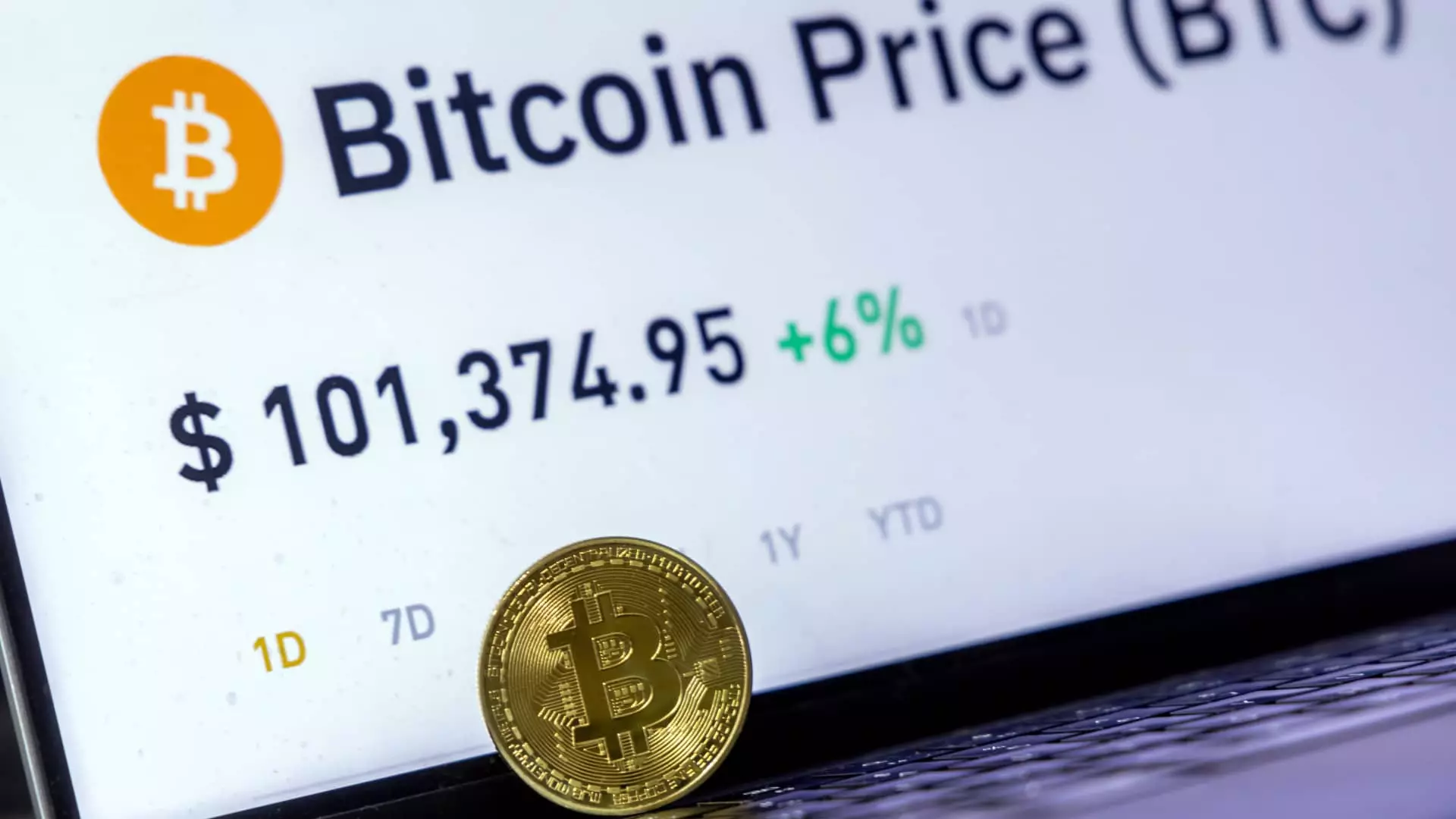The recent surge of Bitcoin above the $100,000 mark signals more than just a milestone for the cryptocurrency itself; it symbolizes a significant shift in perception towards digital currencies. As the leading cryptocurrency enters the upper echelon of financial assets, this surge coincides with the growing acceptance from major financial institutions on Wall Street and rising political interest, particularly in light of the U.S. presidential election. For years, proponents of the cryptocurrency touted predictions of this triumph, but many in the traditional finance sphere were more skeptical about Bitcoin’s potential. The reality of its crossing the six-figure threshold, and the consequent 140% increase in value throughout 2024, has prompted a re-evaluation of Bitcoin’s legitimacy and its role in the broader financial landscape.
The ETF Effect
The launch of Bitcoin Exchange-Traded Funds (ETFs) on January 11, 2024, has fundamentally revolutionized how cryptocurrency is viewed and accessed in the financial markets. These ETFs have attracted a staggering influx of investments, surpassing tens of billions of dollars. The iShares Bitcoin Trust (IBIT) stands out as a major victor in this new landscape, boasting an impressive $50 billion in assets. This movement reflects a paradigm shift where institutional investment is no longer an anomaly but becoming the norm. Over time, Bitcoin has transitioned from a speculative fringe asset, largely regarded as a gamble for retail traders, to a cornerstone investment embraced by institutions. It is noteworthy that, as of now, institutions have collectively acquired over 683,000 bitcoins, demonstrating a significant turn in investment strategies and the appetite for digital assets.
Political Influence and Support
The ongoing intertwining of Bitcoin with American politics adds another layer to its rapid ascent. The crypto lobby’s financial commitments during the 2024 election reflect a concerted effort to influence policymakers and elevate the cryptocurrency’s profile within mainstream discourse. With President-elect Donald Trump seemingly aligning himself with the cryptocurrency sector—amplified by his appearances at Bitcoin-related events—the narrative surrounding Bitcoin has garnered newfound political traction. Even the selection of Paul Atkins for the Securities and Exchange Commission (SEC), touted as a friendlier figure towards cryptocurrency than the current chair, signals a shift in the regulatory environment that could favor Bitcoin and its ecosystem. Robinhood’s CEO, Vlad Tenev, emphasized the importance of understanding and embracing cryptocurrency within the regulatory framework, indicating the need for continuity in supportive governance.
Narratives around institutional involvement primarily revolve around substantial investments in Bitcoin via spot ETFs and corporate purchases, particularly emphasizing companies like MicroStrategy, known for its substantial Bitcoin holdings. This drives a sense of confidence among retail investors as institutional interest further legitimizes the cryptocurrency’s value proposition. During recent weeks, a significant share of Bitcoin’s recent surge can be attributed to a 245,000 increase in institutional purchases following the U.S. elections. This influx showcases a decisive pivot in market dynamics, with institutional investors increasingly looking to Bitcoin as a viable asset class rather than merely an experimental financial instrument.
Adding complexity to Bitcoin’s ascension are macroeconomic comments from figures such as Jerome Powell, Chair of the Federal Reserve. His assertion that Bitcoin operates as a competitor to gold rather than the U.S. dollar provides a dual-edged sword perspective. While it doesn’t offer unequivocal support for Bitcoin, it sidelines traditional fiat currencies, thus enhancing Bitcoin’s narrative as a store of value akin to precious metals. Such comparisons with gold not only lend a degree of legitimacy but also invite a broader audience to reconsider Bitcoin’s potential as a hedge against inflation and economic uncertainty.
As Bitcoin continues its journey beyond the $100,000 benchmark, it encapsulates a broader trend that is transforming financial markets and political realms. The realization that institutional investment and political support significantly affect Bitcoin’s value marks a notable change in its acceptance as a mainstream financial asset. The intersection of these forces, alongside macroeconomic conditions and evolving regulatory frameworks, sets the stage for what could be a new era for the cryptocurrency. Whether this momentum is sustainable remains uncertain; however, it is clear that Bitcoin is no longer relegated to the status of a speculative asset but is establishing itself firmly within the realm of legitimate financial instruments.


Leave a Reply